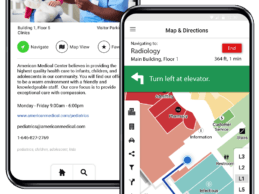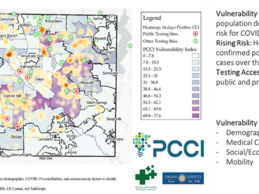In the past few months, the COVID-19 pandemic has shaken societies, economies, and human wellbeing to the core. While protecting public health and welfare are top priorities for hospitals, the harsh reality is that it takes cash to keep the doors open and serve patients effectively. Revenue is down significantly as a result of canceled elective surgeries, while the costs of medical supplies and in-demand personal protective equipment for workers have skyrocketed. Hospitals’ operating challenges
Read More
COVID-19 Infects Patient & Practitioner Demands, Unsettling the Future of Hospital Operations
Prior to the outbreak of COVID-19, the healthcare industry in the United States was in the midst of an intense refocusing on patient-centered care. This evolution was defined by a number of innovations, policies, and even federal reimbursement programs that prioritized emphasis on and impact on the patient experience. It led to changes in everything from the quality of hospital food, valet parking, and room amenities to fundamentally reimagined standards of care for even mundane procedures like
Read More
How to Implement HIPAA-Compliant Video Conferencing for Healthcare Providers
Video-conferencing software like Zoom has been getting a lot of attention of late as more and more people turn to digital tools to communicate remotely, whether to stay connected with loved ones, keep work flowing, or communicate with clients.
Healthcare is certainly no exception. A global FICO study found that around 80% of people want to use their mobile phones to interact with doctors and other healthcare providers.
Digital healthcare solutions were already on the rise
Read More
4 Ways Healthcare Organizations Can Establish Partnerships to Drive Innovation
With public and private healthcare spending significantly outpacing that of other countries, U.S. hospitals face intense pressure to find new ways to capture greater value. More and more, organizations are finding that partnerships with existing vendors can help unlock next-level performance gains in a transformative environment.
Take Nebraska Medicine, for example. In the early 2000s, the health system created multidisciplinary committees to boost revenue integrity and adopted new revenue
Read More
Socialized Medicine Shows its Strengths During COVID-19 – But Only When Paired with Tech
What the US and other
countries can learn from the “Taiwan Example”
Italy has a single-payer medical system, yet it didn’t spare the country from COVID-19. On the contrary, Italy was among the hardest hit and is still struggling. That’s a common talking point one might hear from certain US-based pundits who are critical of so-called “socialized medicine.”
According to international healthcare insurance provider Allianz
Care, “The healthcare system in Italy is a regionally based
Read More
Enhancing Patient Care With a Touchscreen EMR Interface
A clinician’s mission is to deliver the best possible care to his or her patients. However, when technology gets in the way of the workflow, clinicians are obligated to spend valuable time making sure data inputs are accurate and complete across disparate systems. Nowhere is this more prevalent than with electronic medical records (EMRs).
Dr. Peter Greene, MD, CMIO, with Johns Hopkins, said, “Efficiency is really at the heart of what troubles us most. Clinicians really want the EMR to make
Read More
Post COVID-19: 3 Things I Hope Healthcare Won’t Recover From
The loss of lives and livelihoods from COVID-19 is almost too much to comprehend. And yet, slowly, conversations are emerging about the positives percolating from the pandemic.
It’s human nature to want to look for the positives in even the worst of situations, and I’ve noticed that in both my personal and my professional circles of late, people are talking about the things they hope we don’t lose when things go back to “normal.”
Chief among them, especially in my healthcare technology
Read More
Hospital Wayfinding: The Next Frontier in Healthcare Design
Healthcare facilities and their sprawling campuses can be overwhelming and challenging to navigate. In fact, facilities lose close to $800 million a year due to missed hospital appointments, and many physicians blame a significant portion of this lost revenue on the problems patients have navigating these facilities.
Figuring out where to park and finding the correct office can be stressful and negatively impact the patient’s experience. Making matters worse, most hospital staff members work
Read More
How Parkland’s COVID-19 Vulnerability Index Identifies Dallas Hot Spots by Zip Code
PCCI’s Vulnerability Index: Uncovering and capturing factors in Dallas' COVID-19 risk
Taking the fight to COVID-19
Management of pandemic spread (e.g., COVID-19) has tested the healthcare, political, and social fabric of communities around the world. For all, the term “flatten the curve” has come to represent how specific measures, such as social distancing, can slow the spread of the virus, which in turn can help to mitigate the tidal surge that would overwhelm the capacity of the
Read More
Post COVID-19: Medical Billing Finally Realizes the Value of Text-to-Pay
Contactless payments were on the rise even before COVID-19 hit. But now, health systems should see them as essential. Consumers are increasingly wary of touching a credit card terminal that others have used, a perfect conduit for spreading germs. For consumers, text payments serve as a convenient contactless way to pay, but there are other unique benefits when this method of payment is applied in a healthcare setting.
Let’s look at how text payments can fit into a health system’s revenue
Read More











